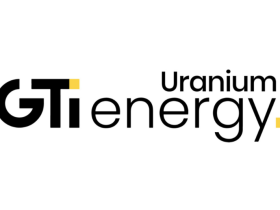There’s no denying the importance of the cleantech sector — even more so as climate change continues to be a growing concern on a global level. For investors, this trend toward a greener world is indicative of opportunities.
Luckily there’s no shortage of ways to get exposure to the cleantech industry. According to Fortune Business Insights, the global market for green technology will be worth an impressive US$61.92 billion by 2030, led by technologies targeting areas such as green building, agriculture, air and water pollution monitoring and carbon footprint management.
How to invest in cleantech stocks?
Stocks are perhaps the most obvious way to get exposure to the cleantech space, and there’s no shortage of companies to choose from. The real question is where prospective investors should start.
Check out the lists below to get an idea of the various sectors that exist under the cleantech umbrella:
These lists of cleantech companies of course provide only a small glimpse at the broader sector, but for those just learning about the cleantech investment opportunity they are a good place to begin.
How to invest in cleantech ETFs and indexes?
For investors who are more interested in the cleantech industry as a whole rather than a single company, ETFs are a popular choice, especially for those who are making first-time decisions. That’s because they spread risk between a basket of stocks.
Cleantech ETFs for clean energy investment enthusiasts to look at include:
For further information, read about the top five clean energy ETFs, or take a look at this ETF database for a complete list of available cleantech ETFs.
Finally, another way to invest in cleantech is through an index such as the S&P/TSX Renewable Energy and Clean Technology Index (INDEXTSI:TXCT). This is considered a form of passive investing and is a way of spreading potential risks.
What is the outlook for cleantech?
The cleantech sector encompasses the wind, solar, energy storage and battery industries, among others. Looking ahead, global innovation continues to drive advancements in these key spaces.
Electric vehicles are of particular interest at the moment, and sales hit 10 million globally in 2022, or 14 percent of global car sales. That’s up from around 9 percent in 2021 and less than 5 percent in 2020, according to the International Energy Agency. With adoption predicted to increase, the organization predicts that sales will hit 14 million this year, representing 18 percent of global car sales. By 2030, the agency expects electric vehicles to account for 35 percent of global car sales.
Meanwhile, according to Brookings, as the cleantech industry continues to grow, new occupations are projected to be created in sectors such as energy efficiency, clean energy production and environmental management.
Additionally, PwC has proposed five transformative cleantech solutions to help reduce carbon emissions and promote a sustainable economy. These solutions include innovations such as distributed grid technology, electric transportation systems and tech-driven urban planning applications.
As can be seen, the industry is clearly not short on new avenues for investment.
Securities Disclosure: I, Melissa Pistilli, hold no direct investment interest in any company mentioned in this article.





